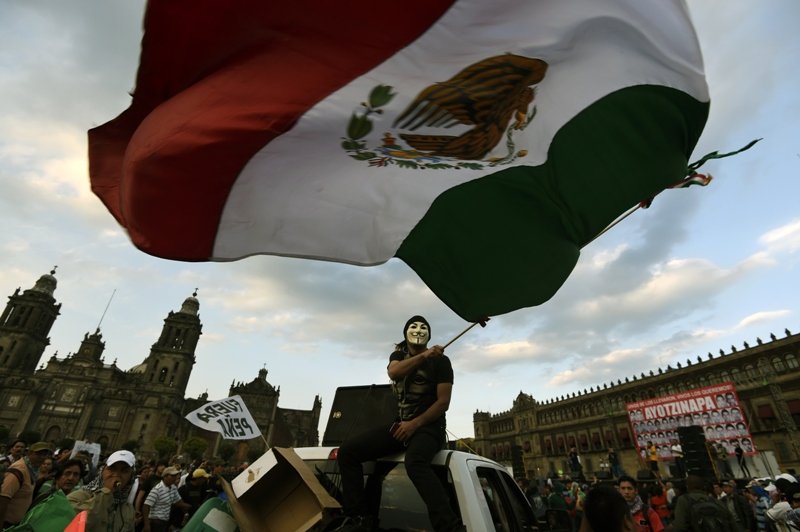MEXICO CITY – Mexican human rights groups asked the U.N. Committee on Enforced Disappearances on Tuesday to establish a special rapporteur for the country amid continuing consternation over the disappearance of 43 students at the hands of police.

While the case of the rural teachers’ college students has thrown the issue of disappearances into particularly stark relief, sparking protests in Mexico and abroad, activists called it emblematic of a widespread problem.
READ MORE: 19 weeks ago, 43 Mexican students disappeared. What happened?
“This is not about an isolated case. On the contrary, in Mexico there is a humanitarian crisis over forced disappearances that the Mexican state refuses to recognize,” said Denise Gonzalez of the Miguel Agustin Pro Juarez Human Rights Center. “Forced disappearance is committed in a generalized manner and all the while the Mexican state tries to diminish its responsibility.”
She spoke at a news conference in Mexico City on the second of two days when the Committee on Enforced disappearances met in Geneva to consider Mexico. It heard testimony from relatives of disappeared Mexicans, and also from the government.
Juan Manuel Gomez Robledo, undersecretary for multilateral affairs and human rights at Mexico’s Foreign Relations Department, said in Switzerland that his country is open to the Committee’s recommendations.
“We can anticipate that there will be recommendations on pending matters and challenges that Mexico still has, from both a legislative and a public-policy point of view,” Gomez Robledo said. “And, of course, afterward these recommendations will have to be followed up on and fulfilled.”
“Mexico takes these exercises very seriously,” he said.
He acknowledged areas where Mexico can make progress, such as passing a general law on forced disappearances before the current legislative session ends in June and improving its national registry of the missing.
WATCH: Violent protests urging president to resign continue in Mexico
According to the latest official figures, there are 23,271 people missing or of unknown whereabouts in Mexico, of which 621 are being sought by the federal Attorney General’s Office’s Search Unit.
Human rights activists call the database flawed.
“It has many problems,” said Zita Loyos of the group Hasta Encontrarlos (Spanish for “Until They Are Found”). “The information is neither complete nor up-to-date.”
The 43 students were detained by police Sept. 26 in the city of Iguala, in the southern state of Guerrero. Mexico’s attorney general has said investigators are certain they were then handed over to drug gang members and killed, with the bodies incinerated and tossed into a river.
However DNA testing has been able to identify the remains of only one missing student, and relatives continue to demand an explanation that satisfies their doubts about the case.
“It’s not fair that the parents are unable to sleep, are unable to rest,” said Clemente Rodriguez, whose son Christian is among the disappeared. “We are not going to consider this case closed.”
Fifteen rights groups signed a joint statement calling the government’s response in Geneva “unsatisfactory” and saying the Committee’s review of forced disappearances in Mexico “represents an opportunity to correct state policy.”
Activists said Tuesday that Mexico’s history of forced disappearances dates back decades, but that the numbers have risen notably under current President Enrique Pena Nieto and his predecessor, Felipe Calderon.
If the U.N. Committee names a rapporteur for Mexico, that person would monitor disappearances in the country, prepare reports and make recommendations.
Rights advocates also urged Mexico to formally and fully recognize the committee.
Gomez Robledo said the matter is up for consideration, and the government welcomed the opportunity to appear before the Committee.



Comments